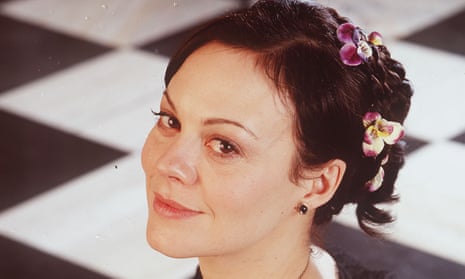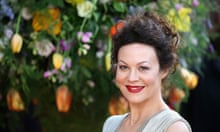How should a woman live her life? Survive to the age of 70, fearfully, being as everyone else instructs her to be? Or play the heroine, passionately, in the knowledge that trying and failing need not equal defeat?
This is the timeless conundrum Tolstoy’s vivid heroine, Anna Karenina, took on, long before it became fashionable to discuss the conflict of desire and expectation in women’s lives. She was an original of her era, but what are the resonances of Anna’s story for the modern woman?
Born into the wealthy, decadent upper class of 19th-century St Petersburg, Anna confronts the hypocrisy of the day when she breaks free of an empty marriage after falling in love with army officer Vronsky. She scandalises her contemporaries when she chooses to live with him as his mistress, after her husband refuses her a divorce. But her passion for her lover is tempered by the pain of leaving her son and the disapproval heaped on her by the Russian aristocracy. Spiralling into depression and opium addiction, she starts to doubt Vronsky. A bout of morbid jealousy tips her over the edge and she throws herself under a train.
When viewers first see Anna, they are aware of the elements of her existence – she is a society hostess, an obedient wife, a good mother – but they don’t know who she is. Nor does anyone in the story because they don’t bother to ask. But loneliness isn’t dependent on the century: there are many women today who feel isolated. They don’t feel they express themselves in the way they want to, they don’t look the way they want to, they are not doing the job they should be doing. Anna is a woman who feels all those things and decides her passion to be loved is greater than her fear of being alone and afraid all her life.
Of course there is a great romanticism to her plight, but she is no feckless ingenue. She leaves her husband and son because it is her only chance of survival. For the first time in her life, Anna is pursued by a man who tells her that she is lovable, that she is beautiful, intelligent and sexual. Everyone understands that need to be loved. Tolstoy wrote that throughout life we experience such revelations and the skill of being alive is to acknowledge them and allow them to change you. Anna can never go back.
In the society in which she lived, it was the norm to be inspired by something higher than yourself: for a man to die for his tsar, his country or his God was considered noble. Women could live out their passions only within the constraints of the home, as Anna did during her nine-year marriage. But when she met Vronsky, her tremendous capacity to love was ignited. It is this passion that both excited Tolstoy and makes her such a compelling heroine. Her ability to live in the moment and her great honesty make her hugely satisfying to play. When she follows her heart, she feels those passions we all want to feel.
Today, passion is narrowly defined in a sexual way. And this in turn is externalised into the formulaic, cold, aesthetic beauty that is admired in our sex. Style has become a dress size, not an attitude, and passion is about a pair of kitten-heeled mules.
This is underlined by reactions to my being cast as Anna. Many people have compared me unfavourably with Greta Garbo, who played the part in 1935. But why shouldn’t an actress be cast because of her passion for the role rather than because of her looks? When Tolstoy wrote the novel, he didn’t describe Anna as beautiful – he gave her a low forehead and large features – but no reviewer then complained that he had failed to make her a goddess.
Anna’s appeal lies in the visceral rather than the physical. It is worth remembering that in Tolstoy’s Russia, the idea of beauty was far more personal, more localised. There was no media aesthetic and no sense of what people in other countries looked like. Today, women are constantly made aware of the physical impression they create; sexuality is defined by the male view of it and women’s sexual role is seen as passive and usable. The images of women’s bodies that appear in advertising and in the media signal vulnerability, needing to be saved and being sexually available at all times. At least Anna and her contemporaries escaped this.
Indeed, at that time, gender defined the roles ascribed to men and women, not the individuals’ temperaments. Roles were created not to allow them to express individuality but, more pragmatically, to run a country. Nor was sexuality important in marriage: whether a woman was fulfilled didn’t matter as long as she bred. Now we find ourselves at the other extreme. The pill has revolutionised women’s lives – but the freedom it has brought can still be used against us.
In one sense, the Russian aristocracy were very honest about sex and love. Marriage was about blood and property, and affairs were acceptable. Anna’s great betrayal is not of her husband but of society. She blows the roof off it when she falls in love and its hypocrisy and cruelty eventually destroy her. Today, the stigma of affairs is more personal but women are still constrained by social mores: Anna could now apply for visiting rights – but she may still be penalised for being a single mother.
Back then, emotional fulfilment was as likely to be discovered through one’s relationship with God as with a lover. It is a very recent phenomenon to expect such totality from a partner. People then didn’t marry thinking they were getting the complete package: best friend, lover, careers adviser. In a more realistic era, there was no sense of the holy grail of perfect union.
Just before she kills herself, Anna says to her lover: “I don’t know who I am, Vronsky, I only know my appetites.” She ultimately sacrifices herself for those appetites, but she has truly lived since Vronsky awakened her and I admire her so for that.
How should a woman live her life? By the end of the story, Anna’s choice is to return to her husband, disgraced, and live a lie, or to say: “I did it, I’ve lived and that’s enough.” She jumps, not from something but to something. There is no defeat. It’s wonderful to see a woman playing the heroine.
This is republished from an original article of 9 May 2000.








